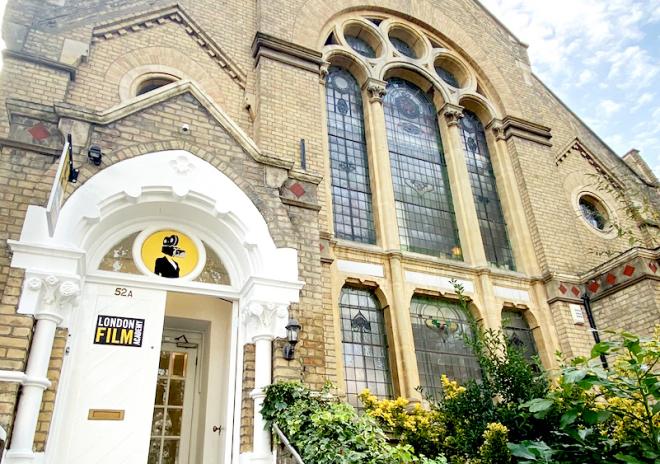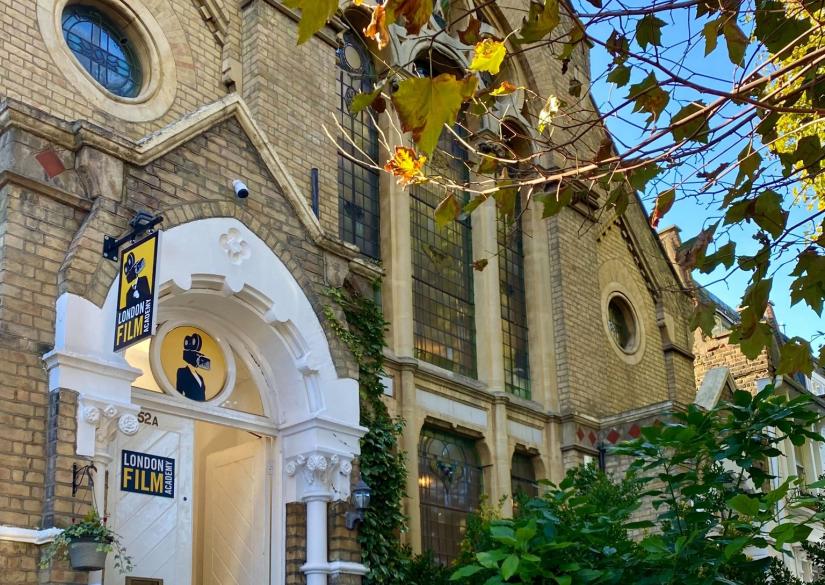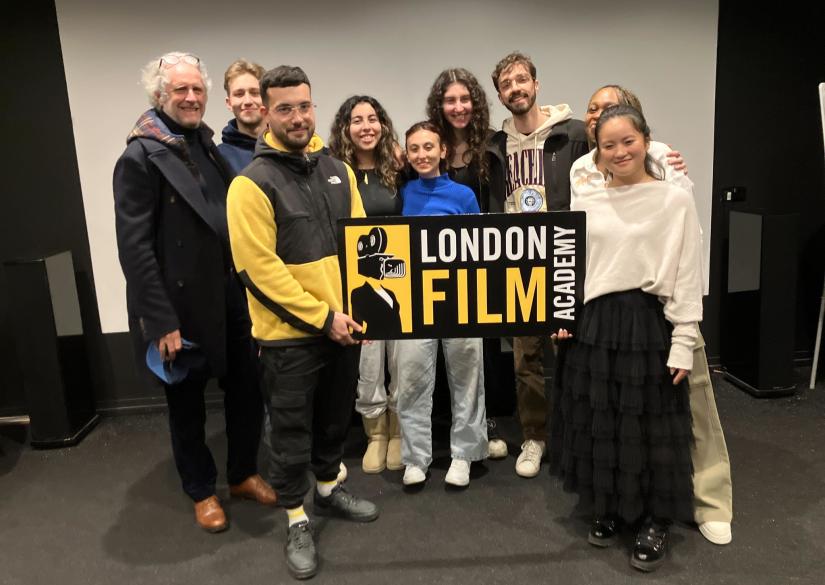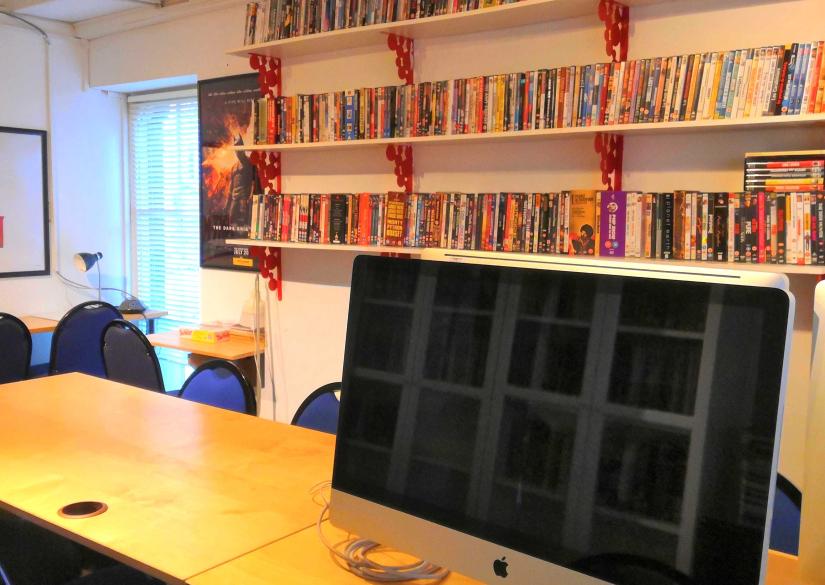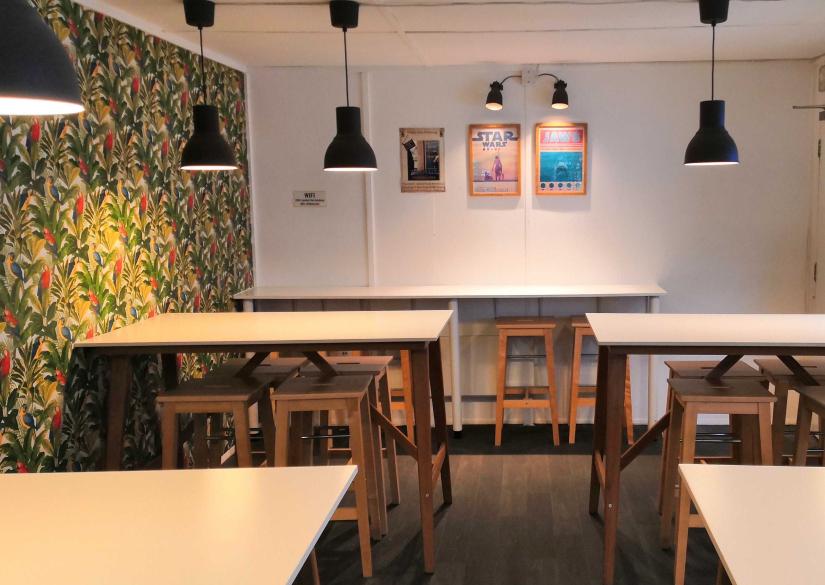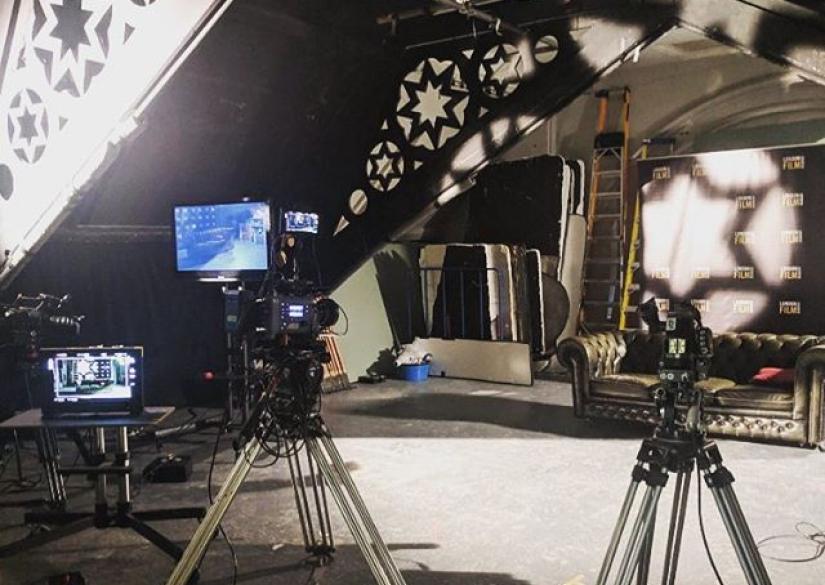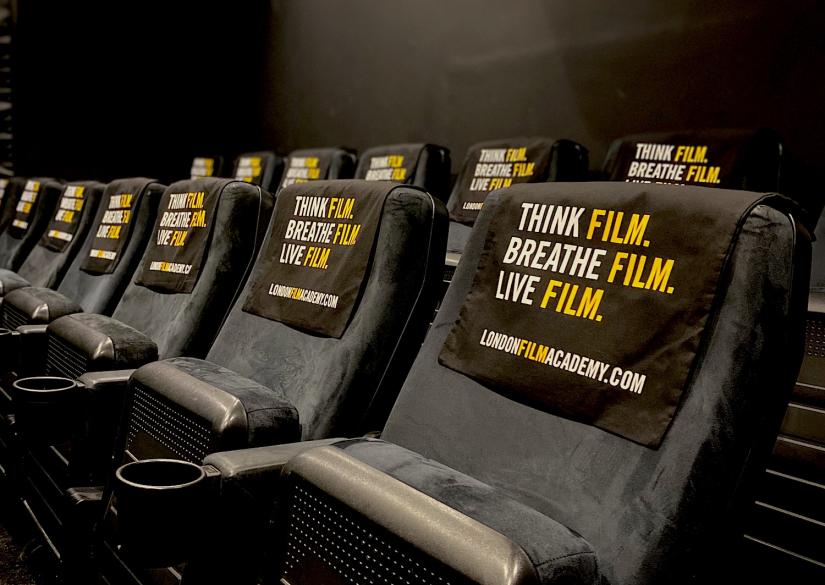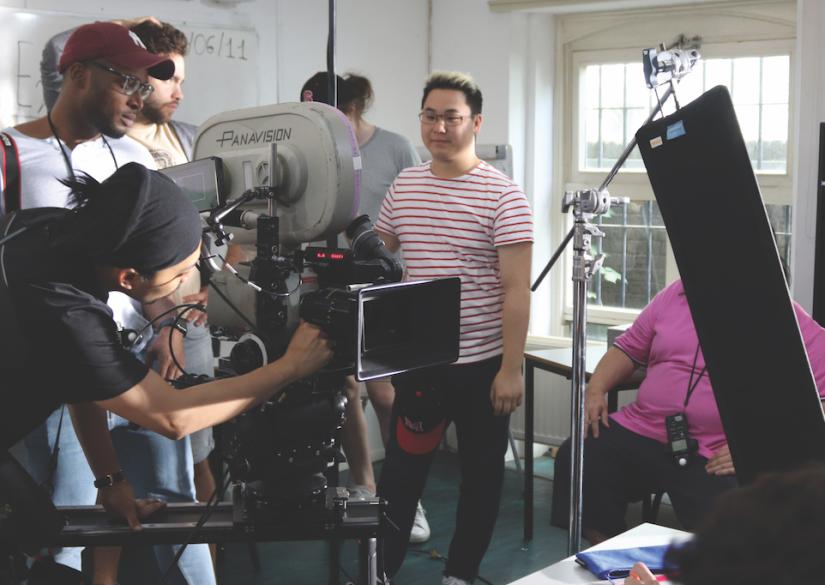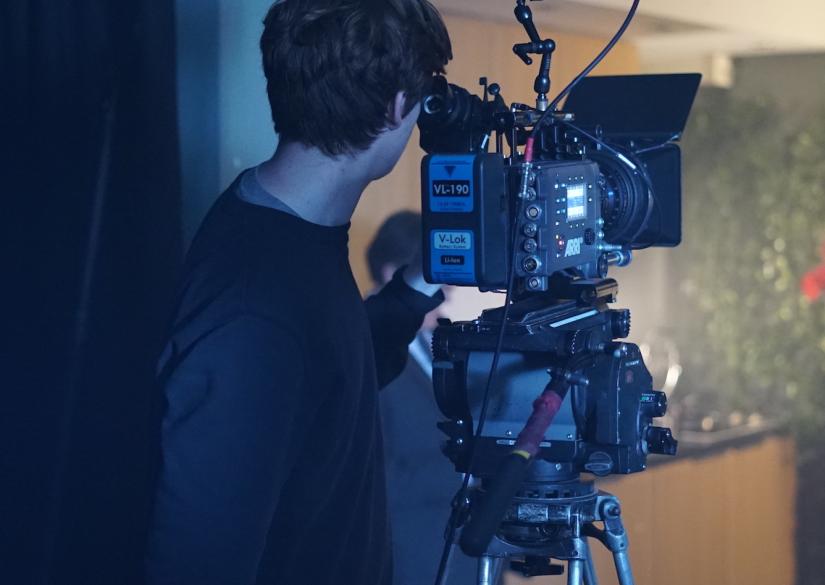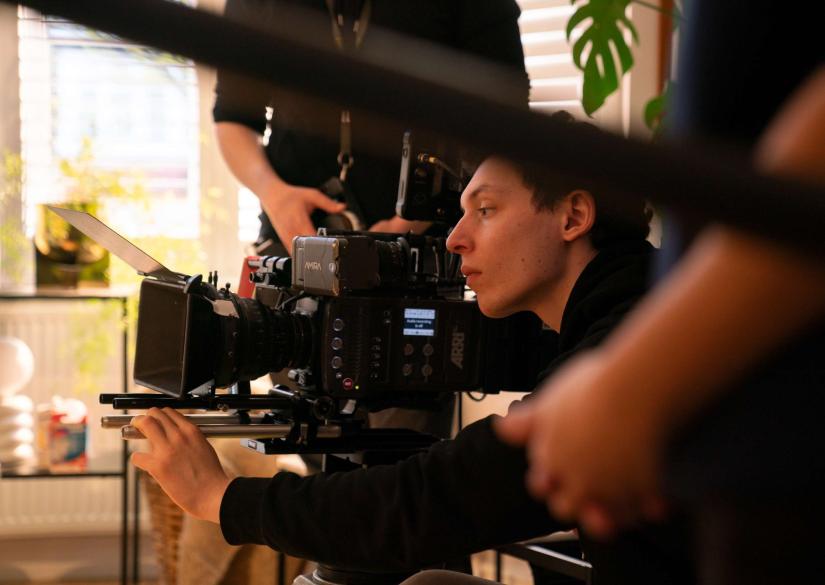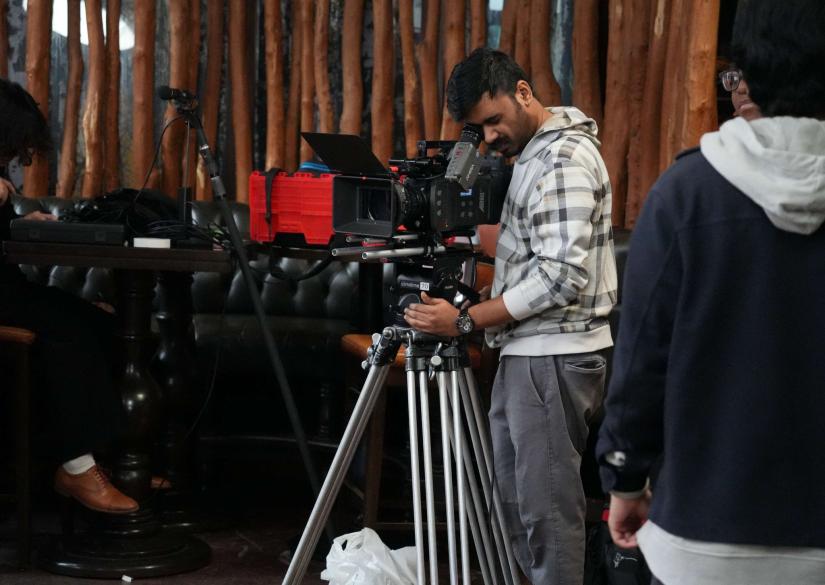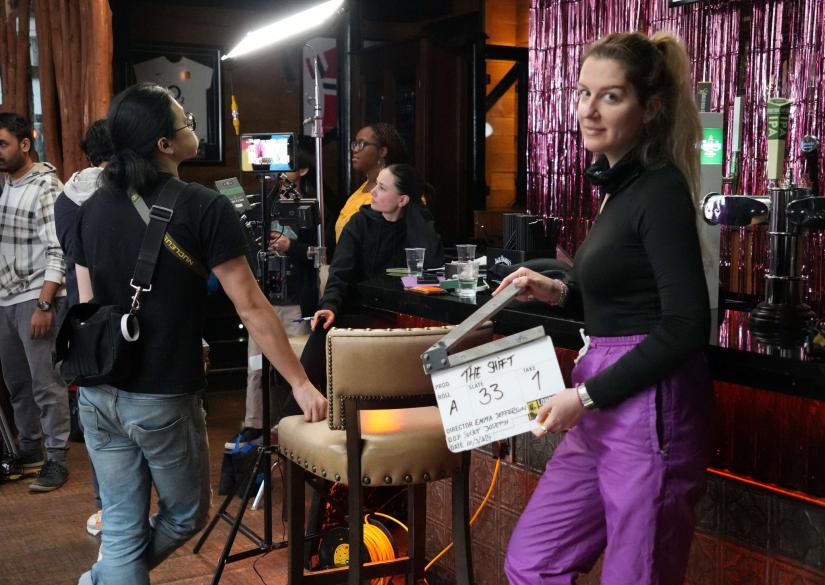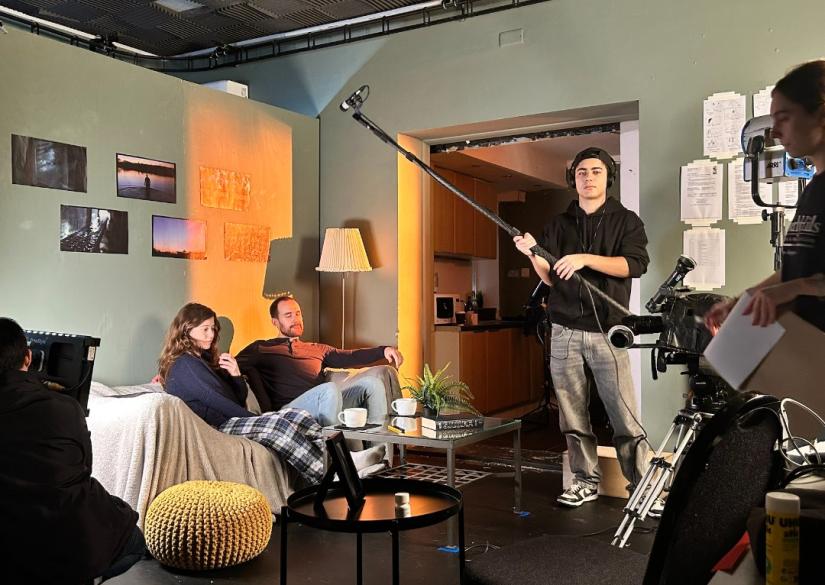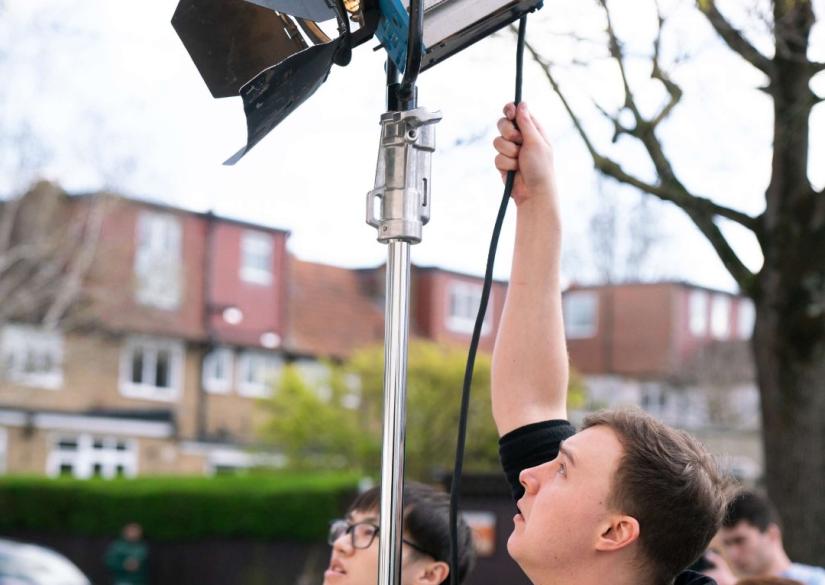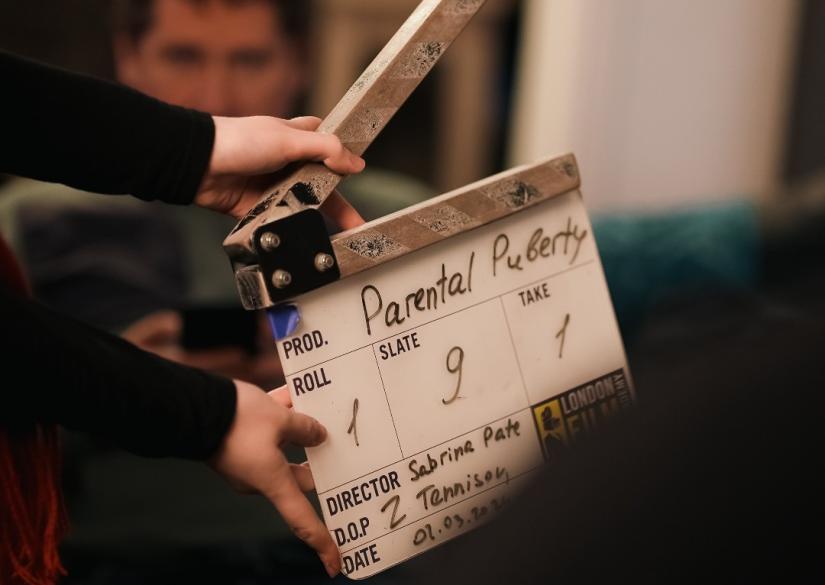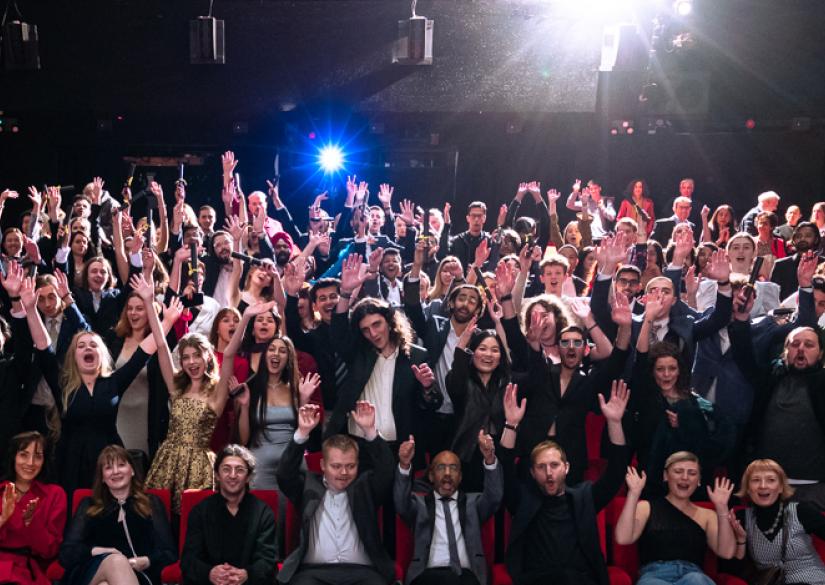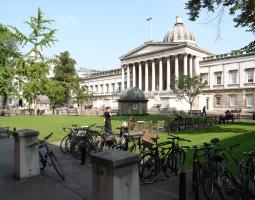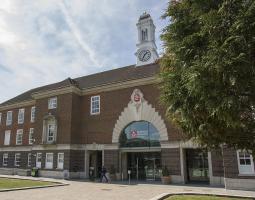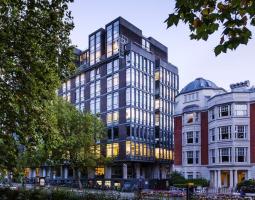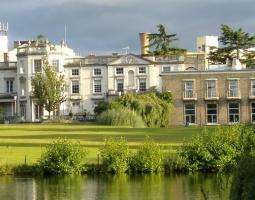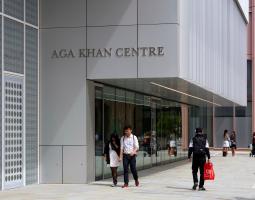London Film Academy
Programs and prices, tuition fees in London Film Academy
BA (Hons) Filmmaking
- Age — 17+;
- Duration — 2 years;
- The language of instruction is English.
The two-year Bachelor of Arts in Filmmaking program offers professional, practice-oriented film education led by practicing professionals from the world of film and television.
During the course, students will gain in-depth interdisciplinary knowledge in all areas of film production, from script to screen, become versatile and flexible specialists who are able to work in a team and organize teamwork. In-depth workshops in the field of storytelling, cinematography and directing, sound, picture and editing, various stages of production, work in compact groups with a close to ideal ratio of teachers and students, as well as well-thought-out and organized employment channels will give students real experience and help to acquire the necessary contacts in various studios and companies.
Training within the framework of the program is completed by the preparation of a diploma film with the possibility of demonstration at film festivals. Students can take advantage of the opportunity to present their product at various networking events.
At the same time, all course materials, the budget of the graduation film and even the cost of participation in events are included in the cost of the program - no additional costs and hidden costs! In addition, students have access to the University of Derby Online (UDo) learning environment, which includes access to the university library, media library, and additional materials on the program.
Postgraduate
- Age — 21+;
- Duration — 1 year;
- The language of instruction is English.
Graduates of an undergraduate program can rise to a higher level through a career master's degree course. MA Filmmaking is practice-oriented training led by highly qualified practitioners in six disciplines:
- direction;
- montage;
- Scripting;
- cinematography;
- Producing;
- sound.
The duration of the program is 1 year; Graduates become experienced filmmakers of a wide profile. The richness of the program, career-oriented research, and work on educational films allow us to make a serious bid to put our name in the annals of the history of world cinema.
This is a good option for aspiring writers or those who want to continue their studies as a screenwriter or director at a postgraduate level, improving in their chosen industry. The course provides everything you need, including individual mentoring, a large number of structured lectures and seminars on film theory (genres and plots, building a world, character, image, features of dialogues and storylines, etc.). All the teachers of the academy and guest lecturers are professional screenwriters, agents and producers.
Short Courses
- Age — 16+;
- Duration — 4 weeks;
- The language of instruction is English.
Intensive short programs with 4 weeks and 20 days of classes are a hands-on, inspiring and exciting journey for beginners who want to immerse themselves in the world of cinema. They offer students extensive foundational knowledge, important skills, and the opportunity to create their own film – from concept and script to screen demonstration.
The intensive course will allow you to get an idea of working with professional digital cinema equipment, and experienced practicing teachers will always be ready to help, advise or inspire students by personal example.
Each day of the course is 5-7 hours of intensive classes within the main disciplines of film production, including directing and production, casting and auditions, working on the script, cinematography and editing using modern software. The theoretical component is complemented by practices designed to demonstrate basic lighting techniques, aspects of the director's work with professional actors, an understanding of the organization of production, or working with modern digital cameras.
Students can supplement the course with a one- or two-week intensive course in the field of documentary filmmaking.
Academy of Young Filmmakers (YFA)
- Age — 13+;
- Duration — from 5 days;
- The language of instruction is English.
Classes in the format of the Academy of Young Filmmakers are an opportunity to get acquainted with the other side of the world of cinema for schoolchildren and students from 13 to 17 years old. Exciting and eventful summer and Easter programs lasting 1-2 weeks are designed to give young people hands-on experience of making a film.
The educational process is built around a small group of 10-15 students, includes interactive seminars in the form of games, within the framework of which bright and extraordinary, experienced teachers with practical experience in the film and television industry will teach how to work with professional actors on the set of a feature film.
Crew members will assign key roles to crew members, from assistant director or director to videographer or lighting designer.
- As part of the one-week course, students will have the opportunity to unleash the potential of making a film on a smartphone, shoot with an LFA camera and, upon completion of the course, will receive all the knowledge necessary to create their own films;
- The two-week course will additionally allow you to learn about modern digital formats, the features of the technical device of the camera, the choice of light, lenses, and professional sound recording in studio conditions.
In both cases, at the final stage of their studies, students will have the opportunity to see their short film in the academy's cinema, inviting family and friends to the screening. Such a film (and a certificate of completion of the course) will serve as a great element of a student portfolio.
Description of London Film Academy
- Founded: 2001,
- Location: London, United Kingdom,
- Age of students: 17+,
- Number of students: 300+,
- Language of instruction: English,
- Type of study: college.
The history of LFA began in 2001, and today this young educational institution is recognized as an innovative school of global importance. It offers more than just film education, producing hundreds of world-class, successful, vibrant and contemporary filmmakers, many of whom have worked on some of Britain's biggest world-class productions.
London Film Academy offers undergraduate and postgraduate programmes, short courses, ranging from production and screenwriting to the technical aspects of production and documentary, as well as summer camps and schools.
The academy is certified by the Higher Education Assurance Agency and registered with the Office for Student (OfS).
Educational process
Lectures by guest speakers, such as Steven Knight, Ian Harlan, Pawel Pawlikowski and dozens of others, play an important role in professional institutionalization and self-determination. Many of the Academy's teachers are also accomplished specialists who continue to work in their specialty, so that students learn from the best in their pursuit of excellence.
Another important element of success is constant film production at the studio's facilities, participation in network events, exclusive vacancies for students and graduates, internships and internships in the best film studios in the Old World.
Accommodation, meals, prices
The London Film Academy is located in Fulham, a lively suburb of London, literally "stuffed" with green spaces, cinemas and craft restaurants, countless attractions, from Stamford Bridge to Picturehouse Fulham Road and Chelsea Stadium. And all this is a five-minute walk from Fulham Broadway tube station, from where the center is just a stone's throw away.
The academy does not have its own residences - they offer to book a room in a city residence or rent commercial housing in the private sector. Among the recommended accommodation agencies are:
- the David Game College network in West Kensington, Earl's Court, Shepherd's Bush, South Kensington and Fulham Broadway;
- iQ Student Residence – Hammersmith;
- Lee Abbey Hotel;
- Fulham Palace Studios;
- New Orient House Hotel;
- Chelsea Lightfoot House Hotel.
All these locations are located within walking distance of metro stations and city buses, offer picturesque, rich in attractions and various activities surroundings and a high level of comfort.
Advantages
The Film Academy in London is one of the most innovative schools in the country, if not the world, offering practice and practicality combined with realism. It has managed to create a friendly and inclusive learning environment that provides:
- An interdisciplinary approach under the supervision and participation of film and television practitioners;
- A large number of practical courses that allow you to gain real work experience in an environment as close as possible to the realities of the industry;
- Access to professional equipment for the production of content, its processing, to its own studio and cinema;
- The best of analogue and digital: Super16 tape and modern digital formats with real-time sound recording;
- Regular and representative participation in film festivals and digital platforms, showreels to demonstrate skills;
- Access to a network of professional contacts in the world of film, theater and television, exclusive job listings, the widest job opportunities, mentoring and career guidance programs;
- Ability to shoot your own movies in Full HD quality;
- Teamwork skills that play a crucial role in fiction and documentary films.
Facilities and equipment at London Film Academy
Once a church was located in the campus building, in 1995 it was closed, and in 1999 the building was bought by the founders of the academy, who invested more than 4 million pounds in it, which made it possible to equip the building with everything necessary for education in accordance with the best international standards. Students have access to:
- A cinema with a digital system of projection equipment and surround sound, where demonstrations of graduation theses, film screenings and master classes of industry professionals are held;
- JW Studio is a studio with state-of-the-art equipment for developing scenography skills;
- A dozen and a half classrooms that have everything you need for classes — from writing scripts and conducting seminars to producing and much more;
- Three editing studios and a recording booth with Apple hardware and software from Adobe Premiere Pro and AVID;
- Spacious lounge and dining room;
- A library and an impressive collection of film materials on various media.
Enrolment process
Applications for education can be submitted online. After processing, the administration will contact the applicant, if successful, he will receive an invitation for an interview (can be conducted online).
Perspectives
Such outstanding contemporary directors, producers and screenwriters as Jean Philippe Gossard, Avril Furnes, Alice Rosso and Philippe Tennant, documentary filmmakers Michael Fiscaris and Max Williams have been educated at the Academy.
Entry requirements, how to apply, what is required to enrol
Applicants must meet certain criteria:
- At least 3 BBC A-Levels (English, Film & Media, Drama, Photography, Art & Design, Media Production will give certain advantages);
- Minimum of 3 GCSEs at Level 4 (including English and Maths);
- IELTS English level of at least 6.0;
- Students over the age of 21 can provide a portfolio or CV: if the admissions committee deems them sufficient, no other evidence of sufficient qualifications will be required.
The application for admission must include:
- a link to a portfolio, a video showreel or a short film script;
- resume;
- 750-word motivational essay;
- diplomas and certificates of education;
- 2 professional or academic references;
- a copy of the passport;
- 2 passport-size photos.
Scholarships London Film Academy
A hands-on approach combined with idealism, an inclusive learning environment, and the best mentors are the foundations of London Film Academy's success. The goal is to make film education affordable, so the school offers students many forms of support, including full-time or part-time tuition scholarships, grants and other awards, and need-based scholarships.
Undergraduate students from the UK or overseas can apply for special payment plans to streamline payments or get installments.
As a rule, financial aid programs or scholarships range from 5 to 20% of the cost of a full course of study (with all additional materials, without reimbursement of the cost of accommodation, meals and transportation).
Institution on the map
Residence permits, citizenship and other services
- Guardianship services during the studies
- Student supervision
Review about London Film Academy
Recommendations on when to apply
| Language courses, schools and children's language camps | Primary and secondary education - private schools | Preparation programmes for entering universities - higher education | Higher education (after completing accredited programs A-level, IB, High School) - Bachelor, Master, MBA |
| - we recommend to apply 6-9 months before the start of the course (some camps and schools offer discounts for early booking or for lengthy study programs) - there are some very popular and high demand children's camps, where the applications need to be submitted 1 year in advance (in particular Switzerland , Great Britain , USA , Canada , Austria) | - we recommend to apply one year before the start of the training program, - some schools have a specific time frame (September-November - please specify an individual school) - some schools require tests in several stages (UKISET, internal tests of the school: English, mathematics, logics, subjects, interview, some require a personal visit) | - we recommend to apply one year before the start of the program, - for Foundation and Pathway programs, IELTS and TOEFL certificates are usually required, respectively | - recommended submission one year before the start of the program, - the deadline normally closes in January, for TOP HEIs and, as a rule, in March in other universities - for a bachelor, a Foundation or Pathway preparatory program a completed A-level, IB, High School + IELTS / TOEFL are required - for Masters you need a graduated higher education, in some cases you need a pre-Masters program - MBA requires completed higher education, work experience preferably at least 2-3 years, etc. |


